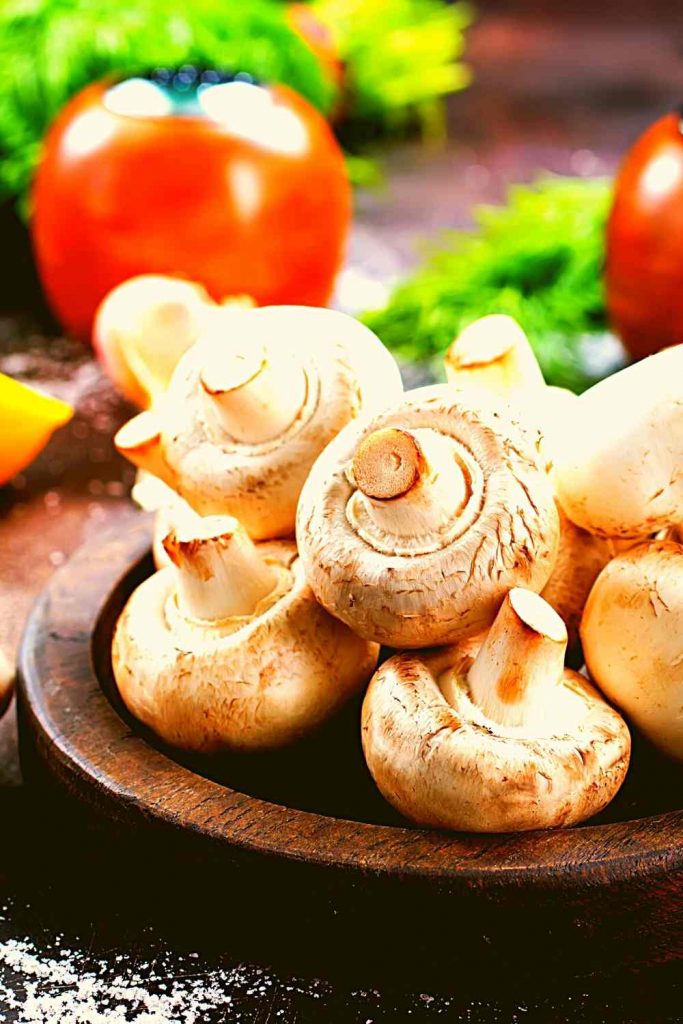You've certainly heard a lot of statements about how some popular meals or food additives are harmful to your health. Fortunately, the majority of these assertions are not backed by scientific evidence.
However, there are a few components that may be dangerous if ingested in big quantities, such as caffeine.

Jump to:
1. Cherry Pits
Cherry pits contain cyanide, but if you accidentally consume them, the cyanide will flow through your system and out of your body.
Prussic acid, often known as cyanide, is found in abundance in the hard stone found in the heart of cherry, making them toxic. It's not necessary to be alarmed if you unintentionally swallow a pit since they will travel through your system and out the other end without any problems. While you're munching on your cherries, try not to crunch or crush the pits.
2. Apple Seeds
You should exercise caution while eating apple seeds since they contain a small quantity of cyanide.
Apple seeds contain cyanide as well, so eating a handful of them as a snack is not a good idea. Apple seeds, on the other hand, have a protective covering that prevents cyanide from entering your system if you accidentally consume them. However, it is prudent to use caution. Even in modest quantities, cyanide may induce fast breathing, convulsions, and, in severe cases, fatalities.
3. Elderberries
Elderberries contain lectin and cyanide, both of which may make you feel ill if consumed in large quantities.
Elderberry may be taken as a syrup or supplement to help improve your immune system and cure cold and flu symptoms, as well as constipation and diarrhoea. Elderberry is a healthy fruit, but eating unripe berries, bark, or leaves of the plant may make you feel worse rather than better. They contain both lectin and cyanide, which are two compounds that may induce
nausea, vomiting, and diarrhoea in certain people when consumed.
4. Nutmeg
Because of the presence of myristicin in nutmeg, consuming large quantities of the spice may cause nausea and vomiting.

When nutmeg is used in little quantities in baked products, it imparts a pleasant nutty taste to the baked goods. However, if you consume it by the spoonful, it might create serious difficulties for your digestive system. Because of the presence of myristicin, a poisonous oil that may induce hallucinations, sleepiness, dizziness, disorientation, and seizures, even a little amount of the oil can be harmful to your health.
5. Green Potatoes
Green potatoes should be avoided since they contain a harmful glycoalkaloid.
Potatoes have a harmful chemical known as glycoalkaloid, which may be found in their leaves, sprouts, and subterranean stems (tubers). When a potato is exposed to light, is injured, or matures, the presence of glycoalkaloids causes it to appear green. Nausia, diarrhoea, disorientation, migraines, and even death may result from consuming potatoes that are rich in glycoalkaloid content.
6. Raw Kidney Beans
Red kidney beans have a high concentration of lectins, thus it is important to properly cook them before eating them.
In terms of lectin content, uncooked red kidney beans contain the greatest concentration of lectins of any of the bean kinds. It is a toxin that may cause severe stomach pain, vomiting, and diarrhoea in certain individuals. Because it only takes 4-5 raw kidney beans to trigger severe negative effects, it is recommended that you cook your beans before eating them.
7. Rhubarb Leaves
Avoid attempting to consume rhubarb leaves since they are rich in oxalic acid.
The stem may be eaten, but the leaf should be avoided. Rhubarb leaves contain oxalic acid, which binds to calcium in the body and makes it more difficult for the body to absorb it. You may get kidney stones, blood clotting issues, vomiting and diarrhoea, as well as a coma as a result of your bones not being able to grow the way they should.
8. Bitter Almonds
Almonds have a high concentration of amygdalin, a chemical that may produce cramping, nausea, and diarrhoea in certain people.
Both bitter and sweet almonds contain amygdalin, a chemical component that has the potential to degrade into cyanide. However, bitter almonds have far higher quantities than sweet almonds. Sweet almonds are acceptable to consume as a snack, but consuming bitter almonds that have not been handled might induce cramps, nausea, and diarrhoea.
9. Star Fruit
If you have renal illness, stay away from star fruit.
In order to avoid complications from renal illness, it is preferable not to include star fruit in your diet. Normal kidneys are capable of filtering out the poisons found in this delectable fruit; but, in the case of a system that is unable of doing so, the toxin remains and may induce mental disorientation, convulsions, and death.
10. Mushrooms
Some wild mushrooms are capable of causing serious symptoms, if not death.
Although they are delicious on pizza, some mushrooms in the wild should be avoided. Two species are especially dangerous: the death cap (Amanita phalloides) and the destroying angel (Amanita phalloides) (Amanita virosa). Eating these wild mushrooms may result in stomach discomfort, diarrhoea, and vomiting, dehydration, acute thirst, liver failure, coma, and death if eaten in large quantities or repeatedly.

11. Raw Cashews
urushiol is a toxin present in the shells of pre-steamed cashews, which is also found in poison ivy and other plants.
Cashews sold in supermarkets with a raw label are not precisely what they seem to be. In order to eliminate a poison found in their shells, they are steamed before being placed on the market shelves. Urushiol is the toxin found in poison ivy, and it is also found in poison oak. Eating cashews that have been pre-steamed might produce an allergic response, which can be deadly if your allergies are severe.
12. Mangoes
Urushiol, a toxin found in poison ivy and cashews, is present in mangos as well as other plants and foods.
The skin, bark, and leaves of mangoes contain urushiol, the toxin found in poison ivy, in the same way as raw cashews do. If you have a poison ivy allergy, particularly if it is a severe one, biting into a mango might result in a serious response that includes swelling, rash, and even breathing difficulties if you have a significant reaction.




